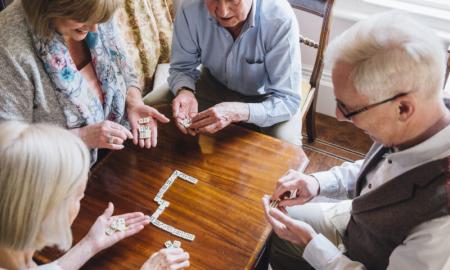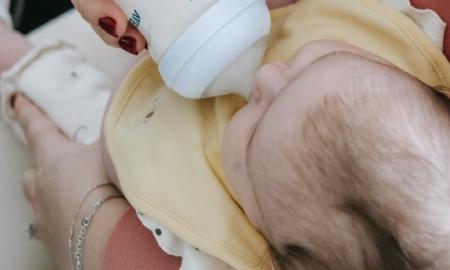Every year, thousands of people are hurt and even killed by fires that start in their very own homes. You may think you’re safe in your own house or flat, but a house fire can happen at any moment. However, there are a couple of safety tips you can utilize that will essentially reduce the risk to almost zero.
Check your electrical system
The first thing you should do is inspect, or have somebody else inspect, your electrical system and wiring. Now, when buying a new home, this is usually done by a contractor or the former owner. However, it needs to be done every couple of years, just in case.
First, check if the receptacles are properly grounded. These need to have three prongs, and breaking one of these prongs or just getting an adapter will most likely cause issues. Unless you’re a certified electrician, don’t mess with the wires in any other way except the one provided by the manual. Next, check any hidden away places, like the attic or crawl spaces. Insects or rats may have damaged the wiring here. Squirrels, for example, have a taste for cable insulation.
Check your panel and fuse boxes, and see if there are any overloaded circuit breakers. Also, if you have breakers or fuses that blow out often, know that this is actually most likely a case of poor wiring. If a fuse blows enough times, it may even catch fire. This is probably the most important aspect of checking your electrical equipment.
Remember, you can (and should) check on all this stuff alone. However, the actual fixing process should be done by a certified electrician, and not by an amateur. Just because your dad spent a summer or two teaching you this stuff doesn’t mean you can safely tamper with the electrical wiring in your own home.
Don’t forget about your kitchen
Most house fires start in the kitchen, and for good reason to. Here you have a stove, cooking oil, smoke and a wide array of things that can start a fire. So, one of the worst things you can do is leave a fire unattended. It doesn’t matter if you’re just going out for a second and if the flame is on its lowest setting – well, it’s still an open flame. So if you really have to leave and grab something from the pantry, turn the flame off, it won’t ruin your meal.
Next, remember to always keep a lid nearby when you’re using hot oil for cooking. In case a flame bursts out, you can use the lid to close it. You can do the same with anything metallic that can stop air from reaching the fire. Also, remember, to never use water to extinguish an oil fire. This will make things much worse, it will make the fire larger. You need to stop oxygen from reaching the open flame or use a fire extinguisher. Think about getting a good fire bell or alarm – these can quite literally save your life and your home.
Your appliances are no joke
People often forget about their appliances causing a house fire. This quite often happens duo to either neglect or just cheap products. These can start electrical fires, which, like oil fires, must never be stopped with water. A fire extinguisher may be your only hope here (excluding actually calling the fire department).
There are a couple of things you can do in order to avoid a fire caused by a faulty appliance. First, check all the power cords and cables. If you notice any kind of damage done to the prongs or the wiring, you need to get it fixed, or throw it out.
Next, keep your oven clean – accumulated geese is just a fire waiting to happen. If you have literally anything that uses a filter, you need to clean it regularly. An air filter in your kitchen accumulates grease, while the one in your air conditioning unit is full of dust. Both dust and grease are very flammable, and the slightest spark can set them off. Not to mention that a clogged filter will cause an appliance to heat up, increasing the fire hazard even more. The same goes for a dryer – lint is a serious fire hazard. Get some fire alarms near risky appliances, just in case.
Candles, smoking, and fireplaces
A huge amount of fires are started by people falling asleep when smoking. The cigarette will fall out of your hand and put something ablaze. If you’re feeling tired or are under some drowsiness inducing medication, don’t sit down when smoking – and especially don’t smoke in bed. Also, if you just put out a cigarette and are going to bed or leaving your house, remember to dampen the ashtray, just for the odd chance that you may not, actually, have put the cigarette out.
Be extra careful with any candles or other open flames. The same things apply as above – don’t leave a candle alight while leaving your home or going to sleep. Furthermore, try to avoid even leaving the room without first snuffing out the candle – better be safe than sorry.
If you have a fireplace, inspect if the hearth or the inserts are damaged in any way. These are there to actually protect you from the flames. You also need to protect yourself from embers flying around – best get a metal mesh or some kind of fire door. Furthermore, know that woods that really pop and crackle are not safe, since they may actually jump out of the fireplace and onto something flammable.
Conclusion
So there you have it, folks – the top tips to figure out how to keep your home safe. These tips and activities may be annoying and difficult, but remember, we're talking about the safety of your home and your family here. Just be diligent and patient and you will definitely be able to avoid a tragedy. Stay safe.






